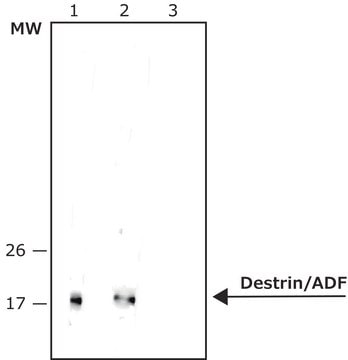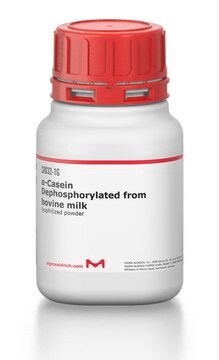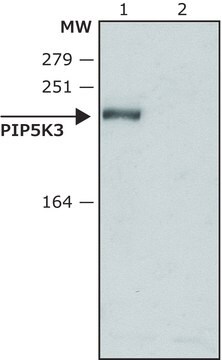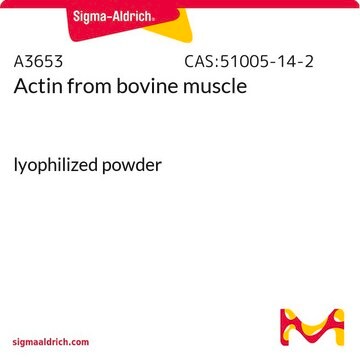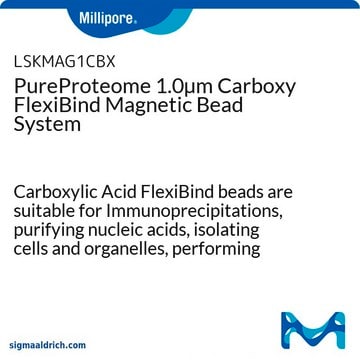D8815
Anti-Destrin/ADF (GV-13) antibody produced in rabbit
affinity isolated antibody, buffered aqueous solution
Synonym(s):
Anti-Actin Depolymerizing Factor
About This Item
Recommended Products
biological source
rabbit
conjugate
unconjugated
antibody form
affinity isolated antibody
antibody product type
primary antibodies
clone
polyclonal
form
buffered aqueous solution
species reactivity
human, canine, mouse, rat
concentration
~0.5-1.0 mg/mL
technique(s)
indirect immunofluorescence: 1:100 using mouse NIH/3T3 fibroblasts
western blot: 1:1,500 using whole extracts of human A-431 epidermoid carcinoma cells, rat PC-12 pheochromocytoma cells, and dog MDCK kidney cells
UniProt accession no.
shipped in
dry ice
storage temp.
−20°C
target post-translational modification
unmodified
Gene Information
human ... DSTN(11034)
mouse ... Dstn(56431)
rat ... Dstnl1(296197)
General description
Immunogen
Application
Biochem/physiol Actions
Physical form
Disclaimer
Not finding the right product?
Try our Product Selector Tool.
Certificates of Analysis (COA)
Search for Certificates of Analysis (COA) by entering the products Lot/Batch Number. Lot and Batch Numbers can be found on a product’s label following the words ‘Lot’ or ‘Batch’.
Already Own This Product?
Find documentation for the products that you have recently purchased in the Document Library.
Our team of scientists has experience in all areas of research including Life Science, Material Science, Chemical Synthesis, Chromatography, Analytical and many others.
Contact Technical Service